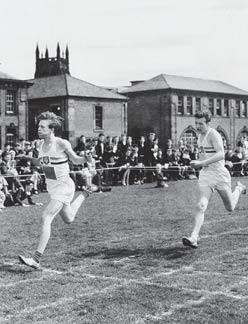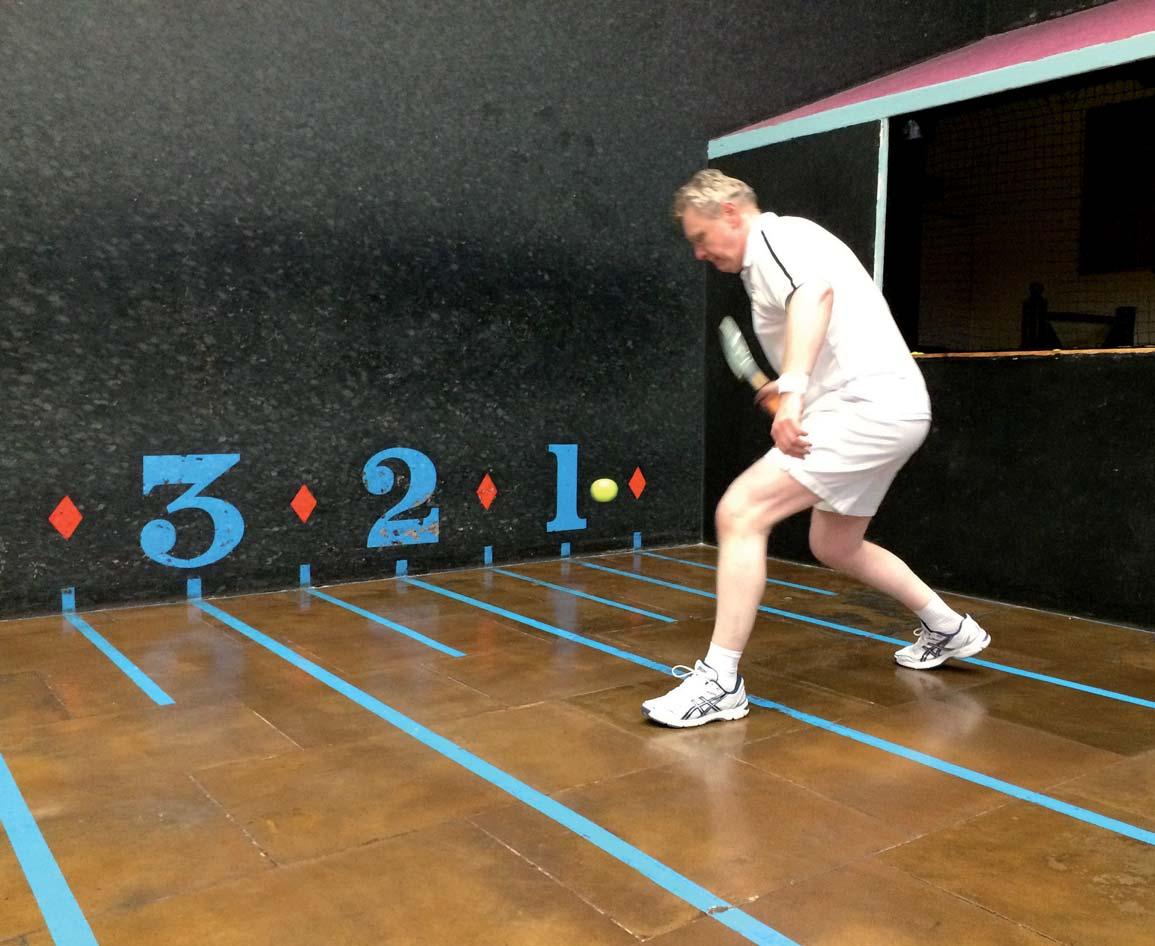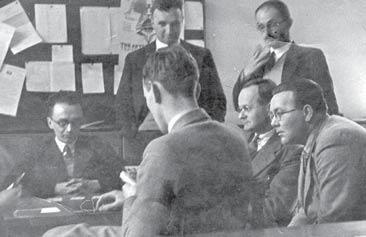Imagine a devilish combination of lawn tennis, squash, three-dimensional chess and poker, all played inside a gigantic pinball machine.Welcome to my new sporting obsession, real tennis, sometimes called court tennis (especially in America) or royal tennis. I joined my local club at Hatfield House, the Jacobean pile in Hertfordshire, for social reasons. The addiction came soon afterwards, the first time I hit a ball – no, actually, the first two times I missed. By Martin Tate (69-77)
Martin Tate on court
The Oldest New Sport
12
T
he rules of what is now termed real tennis were mostly formalised in the 1300s. The game was popularised and influenced by Henry VIII in the 1500s. In 1877, Spencer Gore won Wimbledon’s first gentlemen’s singles title but declared, “Lawn tennis is a bit boring. It will never catch on”. However, simplified sports are easier for both learner and spectator. Real tennis declined, and by the 1970s it had almost completely disappeared. Thousands of courts had been demolished or converted to other uses including squash court, sheep pen, part of a prison, furniture storeroom and restaurant (the Parisian Hotel du Jeu de Paume). The current renaissance of the game (more players and new courts, despite a price tag around £1.5m) might be a reaction to a standardised world, since the essence of tennis (devotees don’t use the real) is unpredictability. The court is asymmetric across both axes, both physically and for rules of play. Moreover, courts are slightly different in dimensions, angles of roofs and surface reactions, because most were built in the craft era.








